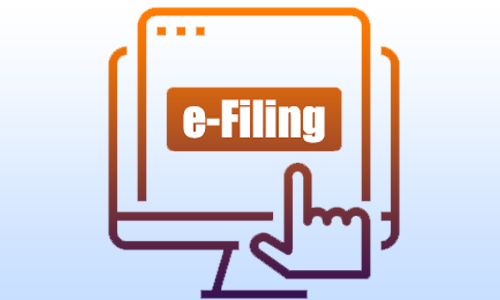E-filing is the submission of legal documents to Courts through electronic means rather than traditional paper-based filing. This innovation has transformed judicial processes worldwide, making them more efficient, accessible, and transparent.
E-filing allows advocates, litigants, and Court officials to file and access documents anytime and anywhere. This eliminates the need for physical visits to Court Houses and reduces delays caused by geographic and logistical barriers.
Automating the filing process significantly reduces administrative workload. Clerks can quickly verify and process submissions, ensuring faster case management and scheduling the cases.
By minimizing paper use, postage, and physical storage requirements, e-filing leads to substantial cost savings for both the judiciary and litigants.
E-filing platforms often include features such as search functions and digital notifications, enabling stakeholders to track case updates seamlessly.
Despite its advantages, e-filing faces challenges like, Digital Divide, that is to say, not all users have access to the technology or internet connectivity required for e-filing. Both legal professionals and court staff require training to adapt to new technologies and workflows.
The Hon’ble eCommittee, Supreme Court of India introduced the eCourts Project, aiming to digitize judicial processes nationwide, including e-filing capabilities.
E-filing represents a significant step toward judicial modernization, ensuring faster, more accessible, and transparent justice delivery despite certain challenges.
KEY FEATURES
- Convenience
- Efficiency
- Cost-Effectiveness
- Enhanced Accessibility


